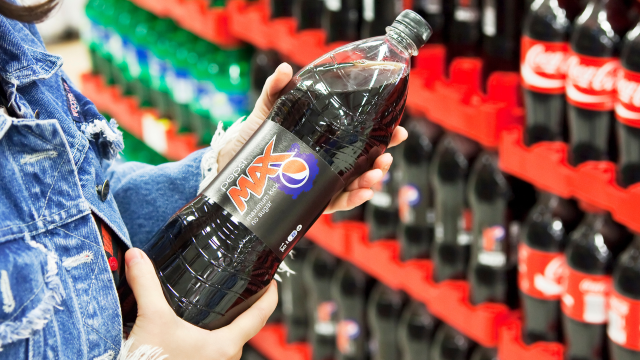Aspartame, a sugar substitute that’s used in Diet Coke and Pepsi Max in Australia, is set to be ruled a carcinogenic by the World Health Organization’s cancer research arm.
Aspartame is often used in place of sugar without the same amount of calories. As aspartame is actually about 200 times sweeter, less of the ingredient can be used to produce a similar taste in some foods, drinks, and gums.
Anonymous sources told Reuters that the International Agency for Research on Cancer (IARC) will rule Aspartame as possibly carcinogenic to humans in July. What that means is that, according to the research agency, the consumption of this ingredient has the potential to lead to the development of cancer in humans.
The IARC does not make a ruling on how much can be safely consumed by humans. That decision would actually come from the Joint WHO and Food and Agriculture Organization’s Expert Committee on Food Additives (JECFA) and national regulators, who are expected to make a ruling on safe consumption levels on the same day that the IARC are expected to reveal their findings.
JECFA had previously ruled that aspartame is safe to consume in moderation, and historically, the possibility that aspartame could be carcinogenic has been contested. A trial on rodents in 2005 found a link between aspartame and cancer, however, this was challenged by two following studies, and discredited by the U.S. Food and Drug Administration in 2013.
Labelling one of the world’s most used sugar substitutes a possible carcinogenic could lead food and drink recipes across the world to change. It’s obviously too early to tell if Coke and Pepsi would stop using aspartame altogether, but there are other artificial sweeteners that may be introduced.
Additionally, as noted by Reuters, the ‘possibly carcinogenic’ ruling will slot aspartame in the same category as the radio-frequency electromagnetic fields used in mobile phones. The ruling is based on the strength of the evidence, and not the danger of the substance. In the above category, ‘probably carcinogenic’, read meat and working overnight are listed.
If you’d like to keep an eye out for food and drink products containing aspartame, the number ‘951’ on the ingredients list indicates that it’s used.
Aspartame, at the moment, is linked to the exasperation of a condition called phenylketonuria. Additionally, while sweeteners like aspartame don’t necessarily lead to weight gain based on calorie count, these flavourings have been found to induce a stronger feeling of hunger and encourage the consumer to eat more.
The IARC and JECFA are expected to reveal their findings on July 14.
This article has been updated since it was originally published.
